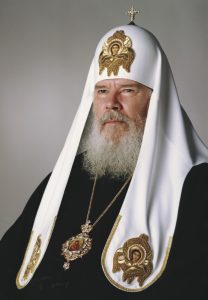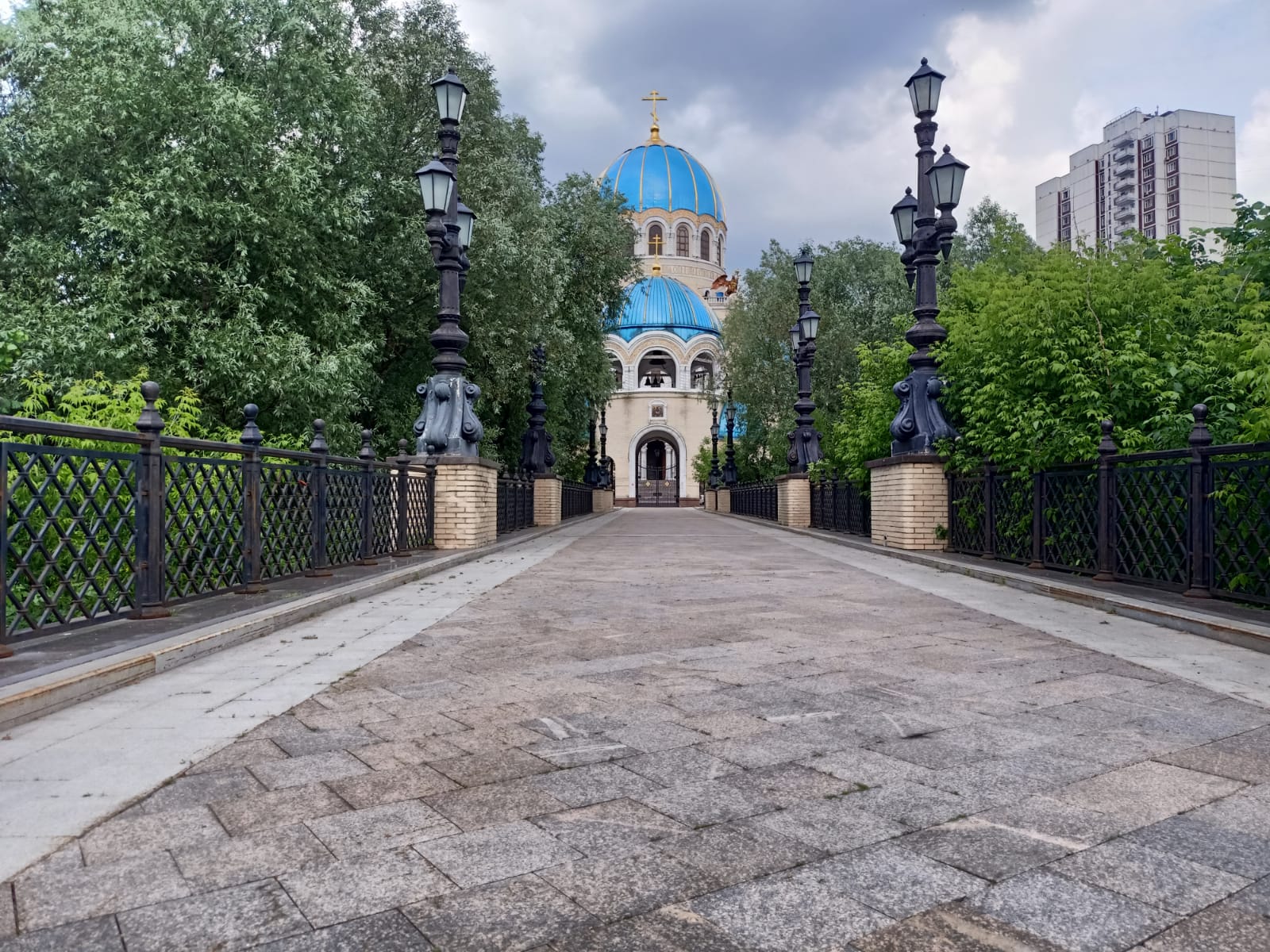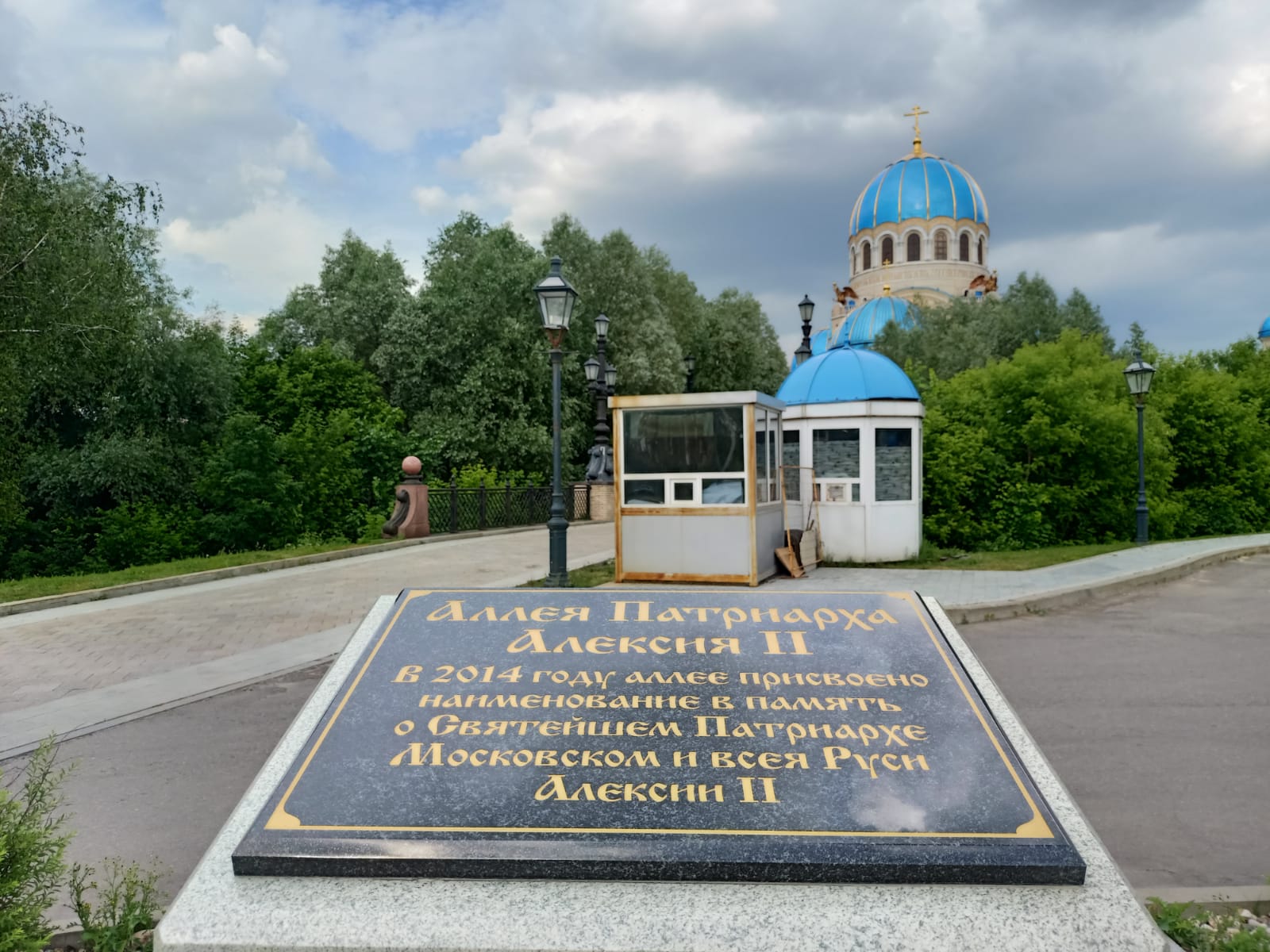Patriarch Alexy II
1929-2008

Patriarch Alexey II (in the world, Alexei Mikhailovich Ridiger), an outstanding hierarch of the Russian Orthodox Church and Patriarch of Moscow from 1990 to 2008, played an important role in the spiritual life of Russia and international church dialogue. He was born on February 23, 1929, in Tallinn in a family of an Orthodox priest Mikhail Ridiger, who descended from a Russian noble family with Baltic-German origins and converted to Orthodoxy in the 18th century. From a young age, Alexey had a desire to devote his life to serving the church, and as an altar boy in Tallinn he helped his father care for Russian parishioners and Soviet citizens in displaced persons’ camps during World War II. After the end of the war, Alexey entered Leningrad Theological Seminary and then Theological Academy. He completed his studies in 1953 after defending his diploma on the topic “Metropolitan Filaret (Drozdov) as a dogmatist”. In 1950, he took holy orders becoming a deacon, and later a presbyter. Alexey served in various parishes in Estonia where he actively preached and taught parishioners, as well as supported the publication of Orthodox literature. After taking monastic vows in 1961 with the name Alexey in honour of St. Alexy of Moscow, Alexy was ordained Bishop of Tallinn and Estonia. He led this diocese until 1992 when he became Patriarch. During his tenure, Alexy II distinguished himself through his active international and ecumenical work. Since 1961 he represented the Russian Orthodox Church at the III Assembly of the World Council of Churches in New Delhi and continued to participate in its meetings for decades, holding responsible positions and promoting dialogue between Orthodox and other Christian denominations. As one of the Presidents of the Conference of European Churches, he contributed to strengthening the peace-making and social presence of the Church in Europe and close cooperation between Orthodoxy and Catholicism. In 1990, Alexy II was elected Patriarch of Moscow and All Russia at a local council held in the context of political changes in the USSR. During his patriarchy, the church underwent a process of returning to public life in the country, with churches being opened, monastic life revived, and social work intensifying. He firmly defended the position of the church on issues related to morality and traditional values, as well as advocating for the restoration of spiritual and moral foundations in society. Among the achievements of Alexey II, his work on the development of relations between church and state, especially in Russia and the countries of the former USSR, occupies an important place. During his ministry, many shrines were restored, including the Cathedral of Christ the Savior in Moscow. Cooperation with state authorities caused some criticism, but the patriarch was convinced that maintaining ties with the state would help to strengthen the church and ensure its rights in new socio-political circumstances. For his work, Alexey II was awarded the Order of Saint Andrew the First Called, laureate of the State Prize of the Russian Federation, member of the Russian Academy of Arts, and Academy of Education. He received numerous awards from foreign countries and international organizations for his contributions to peace and interfaith cooperation.
Address: Moscow, Alley of Patriarch Alexy II

